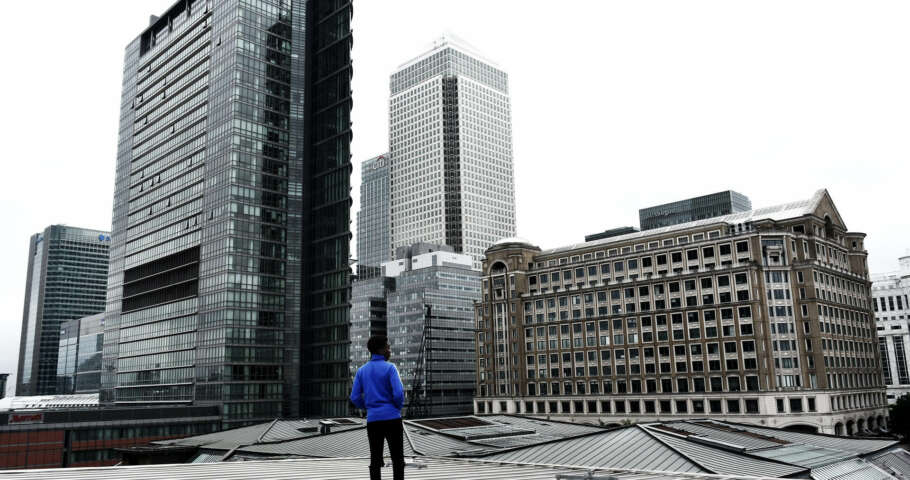It is an exciting time for any business when looking at leasing a commercial property. Taking on a commercial lease is an important commitment and is not something to be taken lightly. Overlooking matters or rushing to sign the lease in order to get the keys released quickly without carrying out proper due diligence can prove costly.
Some key points to consider when considering entering into a new lease:
Term
A question often asked is “How long shall I take the lease for?” This is an important consideration; a long lease can be a big commitment but equally a shorter lease may not give one enough time.
In helping you make your decision we recommend you take the following into account:
- Whether the lease will be within the protection given by sections 24-28 of the Landlord and Tenant Act 1954, which in a nutshell means the lease will be renewable at the end of the lease term subject to certain limited circumstances.
- Whether to incorporate a break clause, this allows for the lease to be ended earlier where certain conditions are met. It is important to note that failing to comply with any conditions will result in you being unable to exercise the break clause.
You should note that there can be different types of break clauses for example:
- a break clause can be a one-off time period for example on the third anniversary of a lease term; or
- there can be more than one date when the lease can be terminated; or
there can be a recurring break clause i.e. exercisable after each year; In all cases, the landlord may request that a break clause is mutual.
It will be a matter for negotiation focussed on what the exact terms of a break clause will contain.
Rent
As a prospective tenant, taking into account whether Value Added Tax (VAT) is payable on rent and other sums under the lease is an important consideration. If the Landlord can prove the property has an Option to Tax from HM Revenue & Customs (HMRC), VAT will be payable.
The landlord will be entitled to deduct monies from the rent deposit and the grounds on which this is acceptable are set out in the rent deposit deed.
Another consideration is to see whether or not you can negotiate a rent-free period with the Landlord: this is a period i.e., 1 month, 2 months, 6months or a year etc. during which the landlord allows you to occupy the premises under the lease without paying rent. An alternative is that the rent is reduced for a period of time under the lease.
Some landlords require a rent deposit to be paid, this is a sum (i.e. the sum of 3 months’ rent or 6 months’ rent), which will be held either for the duration of the lease, or a lawful assignment of lease. The landlord will be entitled to deduct monies from the rent deposit and the grounds on which this is acceptable are set out in the rent deposit deed. It is important that this is looked at by a solicitor so that you are aware of your obligations under this deed.
Rent Review
The longer the term under the lease, the more likely it is that the landlord will want a mechanism in the lease to increase the rent payable. This will be documented in the rent review clause in the lease.
There are different types of rent review clauses for example:
- Fixed increases: this is where you may agree with the landlord at the outset the amount of rent increase during the term i.e. £10,000.00 in year 1, £12,000.00 in year 2 etc.;
- Open market rent review: this is where the rent is based on the open market rent the landlord could expect to achieve at the time of the rent review;
- Index linked: this is where the rent increase is linked to an index such as Consumer Prices Index (CPI) or Retail Price Index (RPI);
- Turnover rent: this is where all the rent or some parts is linked to the amount of income made during a particular period.
Permitted Use
It is important to consider what the property can be used for, and whether this conforms with the business/activity you wish to run at the premises. The permitted use may also list prohibitions and running hours; these need to be checked carefully in order that you can ensure you will be able to run your business from the premises as you wish. Is parking included? Are there any loading bays?
Another consideration is whether there any limits on what the property can be used for, this may affect a future assignment of the lease as it may reduce the scope of potential tenants interested in the property if you decide to part with the lease.
Access
Another consideration is access to the property, for instance ‘is access permitted at all times’? The lease needs to cover access to and from the property. It should include external areas and any areas which you require access to including areas used jointly with others.
Service Charges
If there are shared facilities or the premises you are leasing forms part of a building or complex i.e. business park, shopping centre, other development etc. then it is likely that there will be a service charge for the use of shared facilities.
It is important to discuss exactly what is included in the service charge, how this will be charged, whether any cap or limit can be set on this, and what services will be included in the service charge.
Your solicitor will be able to raise the necessary enquiries in this regard and report to you on the information that they have obtained.
Assignment/Sub-letting/underletting
It is important to note what your options are if you decided to come out of the lease other than when exercising a break clause. Does the lease allow you to:
- assign your lease – this essentially means you are entitled to sell/transfer your lease to another;
- sub-let/under let to another – it is important to consider what the terms for underletting are if this is permitted under the lease.
Assignment and sub-letting clauses in leases should be looked at carefully including whether the requirements the landlord is proposing to impose are reasonable and practicable.
Repair Obligations
This will depend on the way the lease is drafted. You may be granted a full repairing and insuring (FRI) lease, which means you are responsible for both internal and external repairs including maintenance of structural parts of the property.
Where the lease is an internal repairing and insurance lease, you will be responsible for internal repairs and the landlord will be responsible for external and structural parts of the property. You will be responsible to contribute towards the costs incurred by the landlord in this regard.
It is important that the repair obligations of the lease are drafted carefully in order to prevent disputes relating to repair obligations. Your solicitor will be able to point out any unusual or onerous provisions in the lease before you enter into the same.
Why do I need a solicitor?
Instructing a solicitor can ensure that the lease you are granted is in accordance with the terms you have agreed with the landlord. Your solicitor will also flag up issues which you may have not considered.
In respect of a straightforward lease, the steps your solicitor will take are:
- Review of the landlord’s title documents: this will reveal that the landlord has the right to let the property to you;
- Review replies to standard commercial enquiries;
- Review the draft lease, and any other documents i.e. rent deposit deed;
- Apply for searches on your behalf, if these are required by you;
- Report on the lease to you highlighting your obligations under the lease and any other matters which have been revealed in the review of the documentation provided by the landlord’s solicitors;
- Once the lease is in an agreed form, in accordance with your instruction the lease will be completed;
- Deal with any Stamp Duty Land Tax requirements;
- If applicable register your lease with the Land Registry.
It is imperative to be fully aware of what is involved before entering into a lease. Entering into a lease without specialist advice from a commercial property solicitor can result in additional costs in the future.
Tiger Law provides a full range of services for tenants including leases, lease renewals, licence to assign/alter/sub-let. We believe that property matters should not be time consuming but dealt with proactively and expeditiously. Please feel free to reach out.
Ghazala Mahmood our commercial property Associate at Tiger Law has over 15 years experience in advising commercial property clients. Ghazala offers remote meetings via telephone or video conferencing. Contact her to help you with your commercial property needs on 01622 804 077 or on ghazala@tiger-law.com




